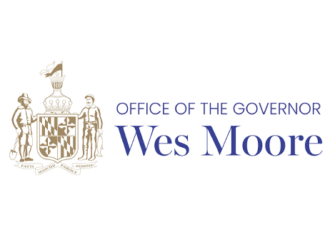
Maryland Supreme Court will consider whether cities and counties in our state can use state civil law to pursue claims against energy producers related to global climate change.
Baltimore, Annapolis and Anne Arundel County are appealing rulings that dismissed their cases on constitutional grounds. Two lower-court Maryland judges concluded, correctly, that questions involving interstate and international emissions belong to Congress and the Environmental Protection Agency, not to local juries.
This debate is bigger than Maryland. Across the country, dozens of similar lawsuits have been filed in recent years, and courts from New York to South Carolina have found them unworkable.
The legal issue is straightforward. Greenhouse gases do not respect city limits or state borders. A patchwork of rulings would be unmanageable and would undermine the consistent national framework that Congress created through the Clean Air Act. That framework empowers federal regulators and source states to strike a balance between environmental goals and the reliability and affordability of energy.
The Justice Department, 24 state attorneys general and various organizations have urged the court to dismiss these appeals. Speaking on behalf of the Maryland Chamber of Commerce, I share their concern. Real progress on climate change can be achieved only at the national and international levels, where policies are coordinated and consistent, not through piecemeal litigation in state courts.
There is also a question of accountability. These lawsuits are not being driven by Maryland communities. They are part of a coordinated national campaign led by out-of-state trial firms that have filed nearly identical complaints in multiple jurisdictions.
They promise that large companies will pay big settlements. The reality has been years of courtroom battles, rising legal bills and very little to show for it. Even in states that often lean toward aggressive climate action, judges have rejected the idea that civil law can substitute for coordinated regulation.
What if, years from now, a local government were to win? A verdict would not build a seawall in Annapolis or raise an electrical substation in Baltimore above flood level. It would not make Maryland’s grid more resilient to extreme heat or accelerate the deployment of new clean energy projects.
At best, after years of appeals and legal wrangling, a settlement — reduced by legal fees — might be reached, which would be allocated to general budgets rather than targeted resilience projects. That is not a strategy for climate action. It is a gamble, and the odds are poor.
Meanwhile, the costs are already being felt at home. Families and small businesses in Maryland are paying more for electricity, food and housing. Allowing state courts to impose overlapping and unpredictable obligations on energy producers would further raise costs. It would also discourage investment in the very clean energy infrastructure that Maryland needs. Companies that might otherwise build or expand here could think twice if the state becomes a testing ground for lawsuits with no clear boundaries.
Maryland has set ambitious climate and resilience goals. Meeting them requires faster permitting for new infrastructure, stronger connections to the regional grid, smarter land use planning that accounts for future flood risk, and expanded options for low- and zero-carbon energy. These are challenges for policymakers, engineers and community leaders, not for judges and juries.
The Maryland Supreme Court now has an opportunity to provide clarity. Upholding the dismissals would align with other courts that have recognized the limits of state law in addressing global climate issues.
More important, it would send a signal that Maryland intends to confront climate risks through innovation, infrastructure and sound policy rather than litigation that consumes resources but delivers little for the environment.
Climate change is real, and it demands solutions that are practical, durable and fair. The path forward runs through resilient infrastructure, technological innovation and effective public policy, not through lawsuits that make headlines but do not bring about meaningful progress.
• Mary D. Kane is president and CEO of the Maryland Chamber of Commerce.



